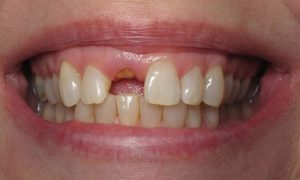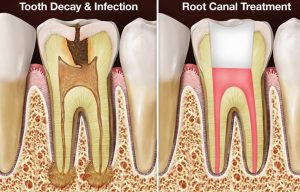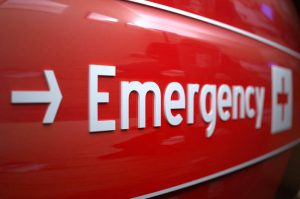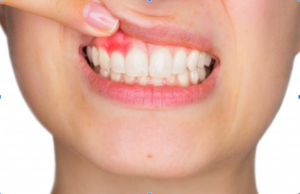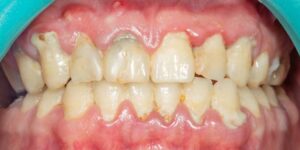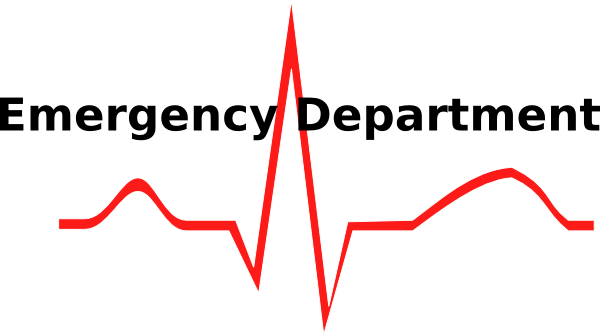
Need an emergency dentist in Rockville, MD, right now? Immediate relief is a call away. Whether you’re dealing with a sudden toothache, broken dental work, or any acute oral injury, local Rockville emergency dentists are prepared to see you through this critical situation. In the following sections, you’ll find a practical guide for identifying dental emergencies, what to do until you reach the emergency dentist Rockville MD, and how to access the best local urgent dental care services.
Key Takeaways
- Rockville, MD, offers immediate and comprehensive emergency dental services for residents and nearby communities, addressing issues such as knocked-out teeth, severe toothaches, and infections.
- Emergency dentists in Rockville leverage state-of-the-art technology for quick diagnostics and effective treatment, including advanced options like digital X-rays and modern root canal techniques.
- Preventative care, such as regular check-ups and good oral hygiene, reduces the likelihood of dental emergencies, while wearing mouthguards during sports can prevent dental trauma.
Immediate Help for Dental Emergencies in Rockville, MD
If you’re in Rockville, MD, or nearby areas like Bethesda and Gaithersburg, immediate assistance for dental emergencies is readily available. Whether it’s a knocked-out tooth from a sports incident or a severe toothache that has you clutching your jaw in agony, emergency dentists in Rockville are ready to provide swift, effective solutions that restore your oral health.
The reach of these emergency dentistry services extends beyond Rockville. They extend their reach to nearby areas including:
- North Bethesda
- Silver Spring
- Potomac
- Washington, DC
This ensures broad access for anyone in dire need of urgent dental care. So whether you’re a Rockville resident or a visitor in need of immediate medical attention for a dental emergency, rest assured that experienced dentists in Rockville are ready to help.
Identifying a Dental Emergency
However, how do you determine if your situation qualifies as a dental emergency? Recognizing a dental emergency expedites your path to timely help. Here are some examples of dental emergencies:
- A knocked-out tooth
- Severe toothaches
- Broken or cracked teeth
- Loose or lost fillings or crowns
- Abscesses or infections in the mouth
If you are experiencing any of these issues, it is important to seek immediate dental care.
Symptoms such as swelling, pus, or fever can indicate a dental abscess, which requires immediate treatment due to the risk of infection spread. Extreme tooth sensitivity or sharp pain during biting or chewing may indicate a serious emergency involving the tooth root. Even a lost filling or crown can signify an underlying issue needing urgent dental care.
Understanding what qualifies as a dental emergency could mean the difference between saving or losing a tooth.
Contacting Your Emergency Dentist
During a dental emergency, having the right contacts ready can be a game-changer. Keeping the contact details of emergency dental clinics readily available can expedite your treatment process.
For immediate assistance in Rockville, MD, you can call or text the following dentists at 301-424-2030:
- Dr Dennis Norkiewicz
- Dr. James Linkous
- Dr. Taruna Purihella
These dentists not only provide emergency dental care but also offer first-aid advice over the phone before you arrive at the clinic. Timely communication is key to ensuring that you receive the most appropriate care swiftly.
Comprehensive Emergency Dentistry Services Offered
In the event of a dental emergency in Rockville, MD, a wide range of services tailored to address your immediate needs await you. From emergency tooth extractions to root canal therapy for severe toothaches, emergency dentists in Rockville are equipped to provide the immediate treatment you need.
In cases of chipped, broken tooth, or dislodged teeth, dentists can employ a range of techniques to restore your smile, such as bonding, veneers, or dental crowns. Even lost fillings or crowns can be swiftly replaced to protect your oral health and prevent further complications from dental trauma. Be confident that skilled professionals stand ready to provide the necessary care, no matter your dental emergency.
From Toothaches to Trauma
Immediate professional attention is needed for common dental emergencies like tooth pain and damaged teeth. Severe toothaches, for instance, can stem from various issues such as infections, cavities, or problems with the gums.
Damaged teeth, including chipped, cracked, or broken teeth, constitute another frequent category of dental emergencies. A cracked tooth is one such example that requires immediate attention. Treatments for such conditions often involve options like dental bonding, the application of veneers, or the placement of crowns. Should you experience severe toothache, uncontrollable bleeding, injuries with gum lacerations, or swelling suggestive of infection, immediate professional help is imperative.
Advanced Treatment Options
State-of-the-art dental technology holds a significant role in emergency dentistry. Advanced tools enable quick and precise evaluations, leading to more effective treatment outcomes for emergency patients.
From digital X-rays for accurate diagnosis to the latest in root canal therapy techniques, emergency dentists in Rockville, MD, utilize cutting-edge technology to provide efficient treatment for urgent dental issues, including emergency root canal procedures. This not only ensures immediate attention and relief but also promotes optimal long-term oral health.
What to Expect During Your Emergency Dental Visit
While an emergency dental visit can seem intimidating, understanding what to anticipate can alleviate your anxiety. The first step during such a visit is a comprehensive examination, including the use of X-rays, to determine the cause of your dental problem.
To alleviate discomfort, dentists may employ a variety of pain management techniques such as nitrous oxide sedation, oral analgesics, or topical anesthetics. Once the emergency exam is completed and a diagnosis is made, the dentist will discuss with you the treatment options along with an estimation of the timeline and cost for the required procedures.
Assessment and Diagnosis
An exhaustive assessment is the first step in managing a dental emergency. Diagnosing your condition hinges on this initial examination.
The dentist will conduct a comprehensive visual inspection of your mouth and review your dental history. Additional tests, such as X-rays, may also be taken to provide a complete view of your dental issues and guide the subsequent course of emergency action.
Personalized Emergency Care
Upon completion of the assessment, your dentist will devise a personalized care plan in accordance with your specific needs and circumstances. This plan will take into account factors such as your dental history, overall health, and the severity of your condition.
After discussing the treatment options with you, the dentist can provide immediate pain relief, prescribing pain-relieving medications if necessary. The care is directed towards managing immediate issues such as pain or infection to prevent further damage to your oral health.
How to Handle Common Dental Emergencies at Home
Should a dental emergency occur, you can take certain steps at home to control the situation until professional help arrives. You can use over-the-counter pain relievers to manage pain and apply a cold compress to alleviate swelling.
In case of a fractured tooth or lost restoration, dental wax can be used to cover sharp edges, and any broken pieces can be preserved in a container of milk for potential reattachment during your emergency dental visit. Remember though, these are temporary measures and you should still seek professional help as soon as possible.
Temporary Measures for Pain Relief
Pain management constitutes a significant aspect of handling a dental emergency. Here are some tips to help manage the pain:
- Use a saltwater rinse to disinfect your mouth if you have an abscess or infection.
- Apply a cold compress to the affected area to help reduce swelling.
- Take over-the-counter pain relievers as needed.
These measures can provide temporary relief until you can see a dentist.
Natural remedies, such as dabbing vanilla extract or applying diluted clove oil on the affected area, can also help provide numbing relief and reduce inflammation. For a lost filling or crown, temporary dental repair materials or dental cement can be used to cover the exposed area, and an applicator stick can assist in placement.
Preserving Dental Health
Maintaining your dental health is paramount to prevent additional damage in a dental emergency. If a tooth is knocked out, follow these steps:
- Carefully pick up the tooth by the crown.
- Rinse it without scrubbing.
- Attempt to reposition it in the socket.
- If repositioning is not possible, the tooth should be kept in milk or a tooth preservation product like Save-a-Tooth® until seeking emergency dental care.
Should you lose a dental restoration such as a crown or filling, here are some steps to follow:
- Keep the area clean and mitigate pain with clove oil.
- The restoration can be temporarily re-affixed with over-the-counter dental cement until you can get professional treatment.
- To prevent tooth damage, avoid using your teeth as tools and chewing on hard objects, which can cause cracking or chipping.
The Role of Preventative Care in Avoiding Dental Emergencies
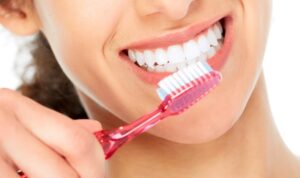
By receiving regular dental check-ups, your dentist can detect potential dental issues early on, preventing them from escalating into emergencies. Good oral hygiene practices, such as:
- brushing and flossing daily
- using mouthwash
- avoiding tobacco and excessive alcohol consumption
- eating a balanced diet
can significantly reduce the risk of dental emergencies. Additionally, wearing mouthguards can protect your teeth from trauma during sports.
Regular Dental Check-Ups
To maintain good oral health and prevent potential dental emergencies, regular dental check-ups are essential. They enable dentists to diagnose and address oral health issues early, preventing the progression of conditions that could lead to emergencies.
During these check-ups, professional dental cleaning is performed to remove plaque and tartar buildup that cannot be completely eliminated through daily brushing and flossing. This helps prevent gum disease and tooth loss that might otherwise escalate into emergencies.
Moreover, these visits provide an opportunity for you to be educated on the best oral health practices and lifestyle changes to improve oral health.
Best Practices for Oral Health
Embracing best practices for oral health effectively helps keep dental emergencies at bay. This includes:
- Using a toothbrush with soft bristles
- Brushing with gentle circular motions to avoid abrasion to teeth or gums
- Flossing daily to remove plaque and bacteria from areas between the teeth that cannot be reached by a toothbrush.
Incorporating mouthwash into your daily routine, particularly those containing fluoride, can reduce plaque and provide added protection against cavities. Moreover, maintaining a balanced diet, rich in fruits, vegetables, and whole grains, while limiting sugary snacks and beverages, promotes oral and overall health.
Emergency vs. Non-Emergency Dental Situations
Distinguishing between emergency and non-emergency dental situations is essential. Here are some indicators of a dental emergency that requires immediate professional attention:
- Severe toothache
- Persistent bleeding
- Significant swelling
- Injuries to the teeth or oral tissues
However, not all dental issues necessitate emergency intervention. Milder conditions like a mild toothache, a lost or loose filling, or a minor chipped tooth without severe pain or risk of further damage can be safely addressed during a scheduled dental appointment.
When to Seek Immediate Medical Attention
Some dental emergencies pose potential life-threats and necessitate immediate medical attention. If you’re experiencing emergency dental issues like difficulty breathing or severe trauma, it’s crucial to visit the emergency room immediately.
Significant swelling in the oral cavity can indicate a severe infection that could be life-threatening and requires immediate medical attention. Similarly, growths or sores in the mouth could indicate oral cancer and warrant an immediate visit to an emergency dental clinic for screening. In cases where someone has suffered oral trauma, it is crucial to seek emergency dental care as soon as possible.
If you suspect you have a broken jaw, head to the local emergency room first before seeking dental care.
Deciding to Wait or Act
Whether to wait or act usually hinges on the severity of your dental problem and the degree of pain or risk incurred. Not all dental issues necessitate emergency intervention and may be appropriately handled during a scheduled dentist visit.
For instance, if a chipped tooth does not cause pain, it’s a good idea to schedule a regular appointment rather than seeking emergency services. But remember, when in doubt, it’s always a good idea to consult with an emergency dentist to ensure your oral health is not at risk.
Summary
Dental emergencies can be a daunting experience, but with the right knowledge and resources, you can navigate these situations with confidence. From identifying dental emergencies to understanding the range of emergency dentistry services, knowing what to expect during an emergency dental visit, handling common dental emergencies at home, understanding the role of preventative care, and distinguishing between emergency and non-emergency situations, you are now equipped to handle dental emergencies in Rockville, MD. Remember to stay calm, act quickly, and seek professional help when needed.
Frequently Asked Questions
What to do if you have a dental emergency on the weekend?
If you have a dental emergency on the weekend, call your emergency dentist Rockville MD for further instructions. If you don’t have a dentist, consider going to an urgent care center or the nearest emergency room.
What are urgent conditions in dentistry?
An urgent condition in dentistry includes injuries causing uncontrolled bleeding, severe pain, or broken facial bones. Left untreated, it can lead to further issues such as infection, tooth mobility, and tooth loss. Prompt treatment is crucial to avoid complications.
What is the most common dental emergency?
The most common dental emergency is a toothache and bleeding gums. These can be caused by dental decay, infections, crooked teeth, or oral injuries.
How does an emergency dentist differ from a general dentist?
An emergency dentist Rockville MD undergoes the same education as a general dentist but also receives additional training in treating severe or abrupt dental injuries, such as dislodged teeth or fractured jaws, making them more prepared to handle urgent situations.
What constitutes a dental emergency?
A dental emergency includes knocked-out teeth, severe toothaches, dental abscesses, and extreme tooth sensitivity, requiring urgent professional care. When experiencing any of these, seek immediate dental attention.


